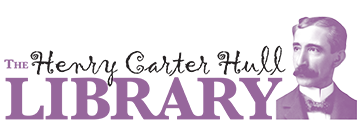Property
(eAudiobook)
Description
MasterClass is the streaming platform that makes it possible for anyone to watch or listen to hundreds of video lessons taught by 150+ of the world’s best.
Whether it be in business and leadership, photography, cooking, writing, acting, music, sports and more, MasterClass delivers a world class online learning experience. Video lessons are available anytime, anywhere on your smartphone, personal computer, Apple TV and FireTV streaming media players. -masterclass.com
Whether it be in business and leadership, photography, cooking, writing, acting, music, sports and more, MasterClass delivers a world class online learning experience. Video lessons are available anytime, anywhere on your smartphone, personal computer, Apple TV and FireTV streaming media players. -masterclass.com
Also in this Series
Checking series information...
More Details
Physical Description
3h 0m 0s
Format
eAudiobook
Language
English
ISBN
9781982419042
Reviews from GoodReads
Loading GoodReads Reviews.
Citations
APA Citation, 7th Edition (style guide)
Raymond Frey., Raymond Frey|AUTHOR., & Cliff Robertson|READER. (2006). Property . Blackstone Publishing.
Chicago / Turabian - Author Date Citation, 17th Edition (style guide)Raymond Frey, Raymond Frey|AUTHOR and Cliff Robertson|READER. 2006. Property. Blackstone Publishing.
Chicago / Turabian - Humanities (Notes and Bibliography) Citation, 17th Edition (style guide)Raymond Frey, Raymond Frey|AUTHOR and Cliff Robertson|READER. Property Blackstone Publishing, 2006.
MLA Citation, 9th Edition (style guide)Raymond Frey, Raymond Frey|AUTHOR, and Cliff Robertson|READER. Property Blackstone Publishing, 2006.
Note! Citations contain only title, author, edition, publisher, and year published. Citations should be used as a guideline and should be double checked for accuracy. Citation formats are based on standards as of August 2021.
Staff View
Grouping Information
| Grouped Work ID | 061ad89a-0b6e-e435-3158-383e3b7eeb8d-eng |
|---|---|
| Full title | property |
| Author | frey raymond |
| Grouping Category | book |
| Last Update | 2024-03-07 02:01:08AM |
| Last Indexed | 2024-04-13 02:15:46AM |
Book Cover Information
| Image Source | hoopla |
|---|---|
| First Loaded | May 28, 2023 |
| Last Used | Jan 10, 2024 |
Hoopla Extract Information
stdClass Object
(
[year] => 2006
[artist] => Raymond Frey
[fiction] =>
[coverImageUrl] => https://cover.hoopladigital.com/bsa_9781433238710_270.jpeg
[titleId] => 10027125
[isbn] => 9781982419042
[abridged] =>
[language] => ENGLISH
[profanity] =>
[title] => Property
[demo] =>
[segments] => Array
(
)
[duration] => 3h 0m 0s
[children] =>
[artists] => Array
(
[0] => stdClass Object
(
[name] => Raymond Frey
[artistFormal] => Frey, Raymond
[relationship] => AUTHOR
)
[1] => stdClass Object
(
[name] => Cliff Robertson
[artistFormal] => Robertson, Cliff
[relationship] => READER
)
)
[genres] => Array
(
[0] => Nonfiction
)
[price] => 1.69
[id] => 10027125
[edited] =>
[kind] => AUDIOBOOK
[active] => 1
[upc] =>
[synopsis] => Property fundamentally marks how we as individuals are related both to other individuals and to society at large. In its strongest form, property absolutely excludes others from possessing, using, or in any way controlling what we own. However, others have insisted that basic human necessity (e.g. hunger) may overrule the power of individual property. The English philosopher John Locke offered a theory of property against which all others have since been measured. Locke said that personal property is a natural right, given by God. One line of his argument emphasizes the human need for self-preservation; here property rights are seen as a necessary instrument for peacefully distributing nature's bounty. Second (and more famously), Locke defends the earliest formation of property in a series of four steps: (1) every person owns his or her self and capacity to work (i.e. his or her labor); (2) by mixing what one owns (labor) with nature's common property, we make other things our own; (3) the consent of others is irrelevant to this process of securing property, and (4) “as much and as good” of nature's bounty must be left for others. Locke says that in later (modern) conditions of scarcity, money allows property to be accumulated without spoilage—and therefore without harm to others. Property owners have a right to bestow or bequeath what they own. If all acquisitions and transfers of property have been just, then unequal accumulations of wealth are not immoral. David Hume criticized Locke, insisting that property is not a natural right but rather a social convention that reflects self-interest and the desire to protect what we own. Jeremy Dentham insisted that only government (rather than society in general) can bestow property rights. Property ultimately involves personal control and security, as often opposed to other individual interests and to the overall interest or advantage of society. This tension is seen in issues like slavery, abortion, euthanasia, organ donation, government regulation, taxation, the power of eminent domain, welfare, and a variety of coercive social programs.
[url] => https://www.hoopladigital.com/title/10027125
[pa] =>
[publisher] => Blackstone Publishing
[purchaseModel] => INSTANT
)
